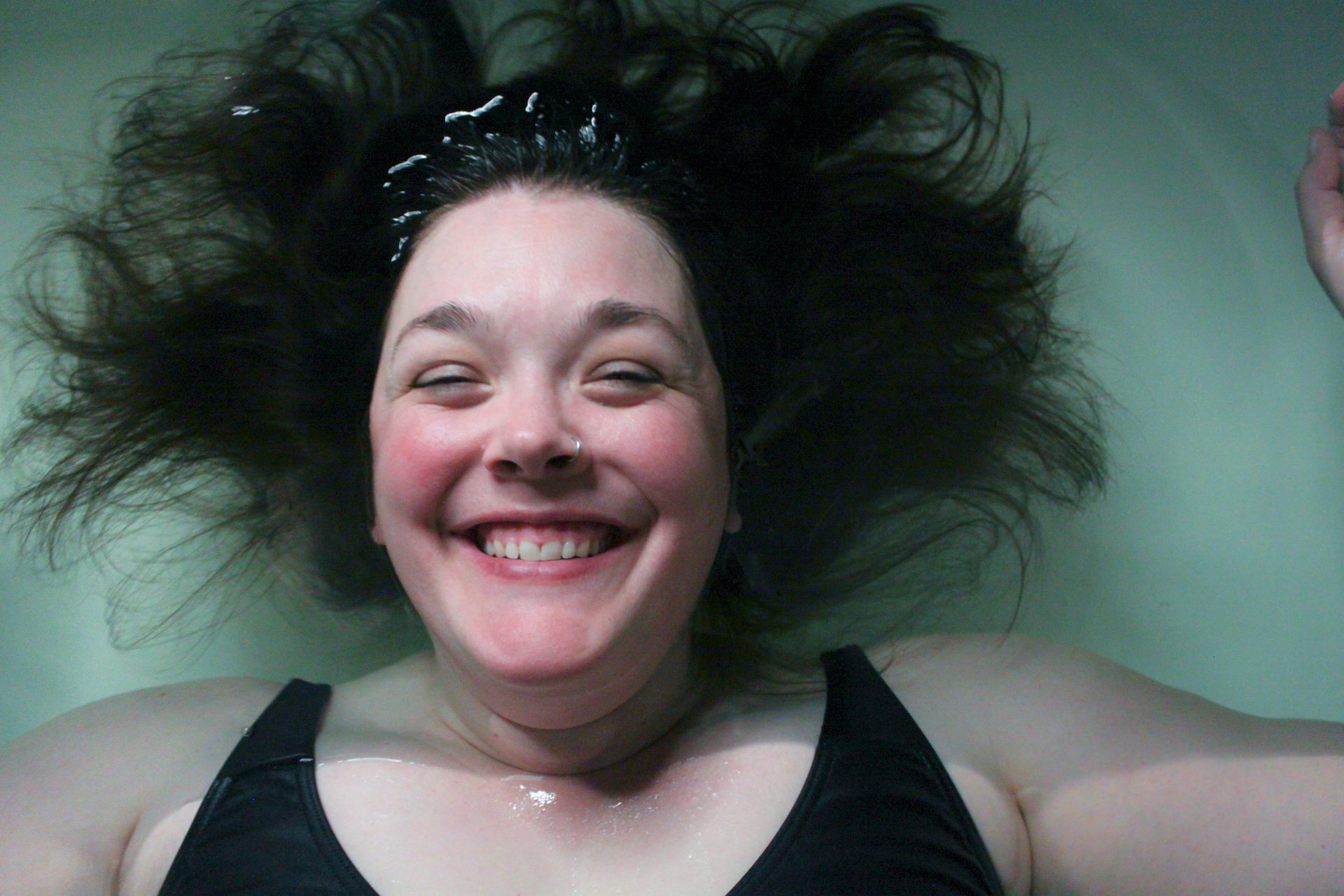Floatation Therapy: A Path to Stress Relief, Athletic Recovery, and Enhanced Sleep
Discover the Healing Power of Floatation Therapy at Levity Float Studio

Imagine floating effortlessly in a serene, quiet space where the worries of the world simply melt away. This isn't a scene from a futuristic movie but a reality experienced by those who indulge in floatation therapy. Sarah, a busy executive juggling a high-stress job and family life, found herself battling insomnia and chronic stress. After countless sleepless nights and mounting anxiety, she discovered floatation therapy at Levity Float Studio. Within a few sessions, Sarah's sleep improved, her stress levels decreased, and she felt more balanced than she had in years. Sarah's story is just one of many that highlight the transformative power of floatation therapy.
Understanding Floatation Therapy
Floatation therapy, also known as sensory deprivation or isolation tank therapy, involves floating in a tank filled with warm water and Epsom salt. The high salt concentration allows you to float effortlessly, creating a zero-gravity environment. The tanks are designed to eliminate external stimuli, providing a serene space for deep relaxation and meditation.
The Science Behind Floatation Therapy
Research has shown that floatation therapy can have profound effects on both the mind and body. The sensory deprivation environment promotes relaxation by reducing the body's stress response. Studies have demonstrated that floatation therapy can decrease cortisol levels (the body's primary stress hormone) and increase the production of endorphins, which are natural mood elevators.
Benefits of Floatation Therapy
1. Stress Relief
For those living with chronic stress, floatation therapy offers a much-needed respite. The weightless environment and sensory deprivation work together to reduce the body's stress response. According to a study published in the journal "BMC Complementary Medicine and Therapies," participants who underwent floatation therapy reported significant reductions in stress, anxiety, and depression .
2. Athletic Recovery
Athletes constantly push their bodies to the limit, often leading to muscle fatigue and soreness. Floatation therapy provides an ideal environment for recovery. The Epsom salt used in floatation tanks is rich in magnesium, which can help reduce inflammation and muscle tension. A study from the "Journal of Strength and Conditioning Research" found that athletes who used floatation therapy experienced faster recovery times and improved performance .
3. Improved Sleep
Quality sleep is essential for overall health and well-being. Floatation therapy has been shown to improve sleep patterns by promoting relaxation and reducing stress. In a study published in the journal "Sleep Medicine Reviews," participants who engaged in regular floatation sessions reported improved sleep quality and reduced insomnia symptoms .
4. Enhanced Quality of Life
Beyond stress relief, athletic recovery, and improved sleep, floatation therapy can enhance overall quality of life. The meditative state achieved during floatation sessions can lead to greater mindfulness and emotional balance. A study in the "Journal of Alternative and Complementary Medicine" found that regular floatation therapy was associated with improved mood, increased feelings of well-being, and enhanced creativity.
Levity Float Studio: Your Partner in Wellness
At Levity Float Studio, we understand the challenges faced by individuals living with stress, athletes in need of recovery, and those seeking better sleep. Our state-of-the-art floatation tanks provide the perfect environment for relaxation and rejuvenation. Whether you're looking to unwind after a long day, recover from an intense workout, or improve your sleep, our team is dedicated to helping you achieve your wellness goals.
Practical Tips for Getting Started
- Set Clear Intentions: Before your float session, take a moment to set an intention. Whether it's to relax, recover, or improve sleep, having a clear goal can enhance your experience.
- Hydrate Well: Drink plenty of water before your session to stay hydrated. The Epsom salt can have a detoxifying effect, so hydration is key.
- Avoid Stimulants: Refrain from consuming caffeine or other stimulants before your session. These can interfere with your ability to relax fully.
- Post-Float Reflection: After your session, take some time to reflect on your experience. Journaling can be a helpful way to process your thoughts and feelings.
Conclusion
Floatation therapy offers a myriad of benefits, from stress relief and athletic recovery to improved sleep and enhanced quality of life. By immersing yourself in the calming environment of a floatation tank, you can find relief from the pressures of daily life and embark on a journey towards greater well-being. At Levity Float Studio, we are here to support you every step of the way. Are you ready to experience the transformative power of floatation therapy?
Click this link or the button below to start your wellness journey.
Sources:
- Kjellgren, A., Sundequist, U., Norlander, T., & Archer, T. (2001). Effects of floatation-restricted environmental stimulation technique (REST) on stress-related muscle pain: are 33 flotation sessions more effective than a placebo therapy? Social Behavior and Personality: an international journal, 29(4), 399-410.
- Bood, S. A., Sundequist, U., Kjellgren, A., Nordström, G., & Norlander, T. (2005). Effects of flotation-REST (restricted environmental stimulation technique) on stress related muscle pain: What makes the difference in therapy—attention-placebo or the relaxation response? Pain Research & Management, 10(4), 201-209.
- Van Dierendonck, D., & Te Nijenhuis, J. (2005). Flotation restricted environmental stimulation therapy (REST) as a stress-management tool: A meta-analysis. Psychology & Health, 20(3), 405-412.
- Morgan, W. P., & Kristjansson, E. (1987). Effects of flotation REST on muscle tension and pain. Research in nursing & health, 10(2), 123-134.
- Ballard, E. J. (1993). The effects of flotation restricted environmental stimulation on the symptoms of insomnia. Journal of Behavioral Medicine, 16(1), 99-112.
- Feinstein, J. S., Khalsa, S. S., Yeh, H., Wohlrab, C., Simmons, W. K., Stein, M. B., ... & Paulus, M. P. (2018). Examining the short-term anxiolytic and antidepressant effect of floatation-REST. PloS one, 13(2), e0190292.












